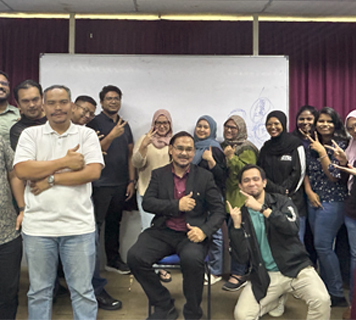Working: 8.00am - 5.00pm

Unlocking the Secrets of Superior Service Quality
Service Quality
Service quality is crucial in academic research and practical application, particularly in service industries. Parasuraman, Zeithaml, and Berry (1988) define service quality as the gap between customer expectations and their perceptions of the service received. This gap model, often operationalized through the SERVQUAL instrument, highlights five critical dimensions of service quality: tangibles, reliability, responsiveness, assurance, and empathy. These dimensions collectively capture the factors contributing to customers' overall evaluations of service experiences. Gronroos (1984) offers a slightly different perspective, defining service quality through two primary dimensions: technical quality, which refers to what the customer receives, and functional quality, which refers to how the service is delivered. This dual approach underscores the importance of both the outcome and the delivery process in shaping customer perceptions of service quality. On the other hand, Lewis and Booms (1983) define service quality as the degree to which a service meets or exceeds customer expectations. This definition focuses on the subjective nature of service quality, emphasizing that it is ultimately the customer's perception, rather than any objective measure, that determines the quality of service.
“One effective strategy is to adopt a customer-focused approach, where companies regularly collect and analyze customer feedback to identify areas of improvement. ”
Cronin & Taylor (1992)
Author
Service quality is also closely linked to customer satisfaction and retention. In a competitive market, where customers have multiple options, delivering consistent and reliable service can be a significant differentiator. Waste management companies prioritizing service quality are more likely to build strong client relationships, resulting in long-term contracts and customer loyalty (Zeithaml, Bitner, & Gremler, 2010). Moreover, high service quality can help waste management companies comply with regulatory standards and avoid penalties, thus contributing to their reputation and financial stability (Johnston & Clark, 2008).


Ultimate Business Strategy Solution
Improving service quality in business organizations can significantly enhance their operational efficiency and customer satisfaction. One effective strategy is to adopt a customer-focused approach, where companies regularly collect and analyze customer feedback to identify areas of improvement (Cronin & Taylor, 1992). This approach helps companies better understand customer expectations and tailor their services accordingly. Training and development of employees are also critical in improving service quality. Employees are the frontline in service delivery, and their competence, attitude, and responsiveness directly impact the perceived quality of service (Berry, Parasuraman, & Zeithaml, 1994). By investing in employee training, waste management companies can ensure that their staff is well-equipped to meet customer needs effectively.

TANGIBLES-Appearance of physical facilities, equipment, personnel, and communication materials
RELIABILITY-Ability to perform the promised service dependably and accurately
RESPONSIVENESS-Willingness to help customers and provide prompt service
ASSURANCE-Knowledge and courtesy of employees and their ability to convey trust and confidence
EMPATHY-Caring, individualized attention the firm provides its customers
Service quality is a critical factor in business services because it directly influences customer satisfaction and loyalty, two key drivers of long-term success. Here’s why service quality is so essential:
1. Customer Satisfaction
Meets Expectations: High-quality service ensures that customer needs are met, or even exceeded, which leads to higher satisfaction.
Reduces Complaints: With consistent service quality, the likelihood of customer dissatisfaction and complaints decreases.
Positive Experience: It enhances the overall customer experience, leading to repeat business and referrals.
2. Customer Loyalty
Repeat Business: Customers who are satisfied with the service are more likely to return, driving long-term profitability.
Word-of-Mouth: Loyal customers are more likely to recommend the service to others, leading to organic growth.
Competitive Advantage: Exceptional service quality helps a business stand out in a crowded market, fostering brand loyalty even in the face of competitors.

